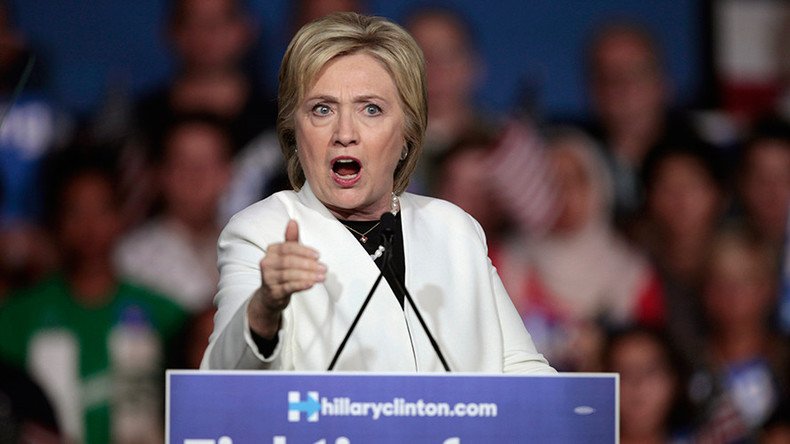Role of Hillary Clinton in Libya war exposed

New light is being shed on the role presidential hopeful Hillary Clinton played as secretary of state in the 2011 military intervention in Libya, with more than 50 officials from the US, Europe, and Libya speaking out to The New York Times.
The report features many of those directly involved in the mission that overthrew the former Libyan leader Muammar Gaddafi, portraying Clinton as a catalyst in the decision to go to war.
Libya may become ‘failed state’ if conflict continues - Kerry [VIDEO]https://t.co/dqQ3U5VKOU
— RT America (@RT_America) February 26, 2016
Beginning in Spring 2011, NATO carried out a bombing campaign for seven months, leaving Libya a failed state overrun by extremist groups. The official government now only controls the eastern portion of the country, with Islamic State (IS, formerly ISIS/ISIL), Ansar al-Sharia and local militant groups controlling other areas.
In the run-up to the intervention, however, Clinton became convinced that overthrowing Gaddafi would lead to a democracy, according to multiple sources interviewed by The New York Times.
Former Secretary of Defense Robert Gates said Clinton was a major influence in President Barack Obama’s decision to go to war. Gates recounted Obama once telling him a debate in the Oval Office on the issue was split “51-49.”
“I’ve always thought that Hillary’s support for the broader mission in Libya put the president on the 51 side of the line for a more aggressive approach,” Gates said.
Gates urged for the opposite, he told the newspaper, telling Obama and others that the Pentagon already had enough on their plate.
“Can I finish the two wars I’m already in before you guys go looking for a third one?” Gates recalled saying.
After a United Nations resolution for military intervention in Libya was secured, from which five countries, including Russia, abstained, Clinton ordered the Pentagon to end contact with the Libyan regime, and ignored Gaddafi’s call for a ceasefire.
Charles R. Kubic, a retired rear admiral, told The New York Times that a senior Libyan military officer offered direct talks with the US military with the goal of agreeing to a 72-hour ceasefire, which would allow Gaddafi and his family to escape the war with their lives.
Upon passing along the message, however, Admiral Kubic remembered the US Africa Command relaying orders to him from “outside the Pentagon” to end the talks with the Libyan official. Neither Obama nor Clinton aides acknowledged that such a cease-fire proposal had ever reached their offices.
DoD, State Dept. justifies Libya strike legality w/15yo authorization, some intl lawhttps://t.co/gRwzvxOXh1pic.twitter.com/0d0CkcMbxk
— RT America (@RT_America) February 20, 2016
Clinton also escalated the intervention in winning the debate over whether to arm the rebels.
“Humvees, counterbattery radar, TOW missiles was the highest end we talked about. We were definitely giving them lethal assistance. We’d crossed that line,” a State Department official told The New York Times.
While Clinton’s Democratic presidential primary opponent Sen. Bernie Sanders (I-Vermont) has repeatedly brought up her vote to authorize the Iraq War, it remains to be seen how prominent the Libya policy will become during the 2016 election cycle.
In an interview with RT, investigative journalist Gareth Porter called The New York Times report and Clinton’s push for regime change in Libya “part of a broader story in which she was really positioning herself to run for president.”
"So, we have both Libya and Syria on her secretaryship as indications of just how seriously we need to take her penchant for adventurism in foreign policy," Porter added.
Libya remains in chaos today with IS pockets in the north and the US again dropping bombs on the region. The UN estimates 400,000 people have been displaced as a result of the intervention.












